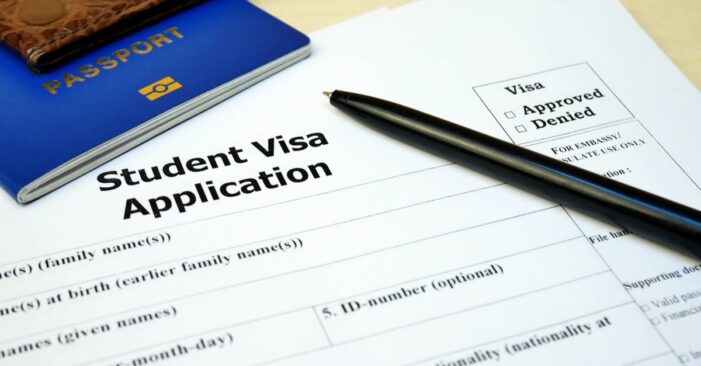By Sarah Martinson, Law360
Twenty-two state attorneys general have urged the U.S. Department of Homeland Security to toss a proposed rule limiting the time that international students and journalists can live in the U.S., arguing the rule is unlawful and would hurt local economies.
In a letter to DHS and U.S. Immigration and Customs Enforcement, attorneys general from states including California, New York and Illinois said the department violated federal law by not giving the public enough time to comment on the proposed rule and not providing a reasonable explanation for the rule change.
Even though federal agencies have historically considered a minimum of 60 days to be the appropriate amount of time to give interested members of the public an opportunity to comment on a proposed rule, DHS only allotted a 30-day comment period on its proposal for adding time limits on student and journalist visas, according to the Monday letter.
“By proceeding at this speed, the department betrays a lack of interest in receiving and incorporating comments from the public,” the attorneys general said. “Providing stakeholders with just a few weeks to consider and provide input on massive regulatory changes regarding issues of great importance does a disservice to the rule of law and to the American people.”
The other 19 attorneys general hail from Washington, D.C.; Massachusetts; Nevada; Colorado; Connecticut; Delaware; Hawaii; Iowa; Maine; Maryland; Michigan; Minnesota; New Mexico; Oregon; Rhode Island; Vermont; Virginia; Washington; and Wisconsin, according to the letter.
In September, DHS proposed a new rule that would limit international student visas to two or four years and would make it more difficult for international students to extend their visas. International journalists would only be allowed to stay in the U.S. for at most 240 days unless they apply for a visa extension that is approved, according to the proposed rule.
The proposed rule would end DHS’ policy of issuing student and journalist visas based on a duration of status framework. The duration of status framework allows international students and journalists to stay in the U.S. for the length of time it takes for them to complete their degree or media assignment.
The attorneys general focused their concern on the impact that eliminating the duration of status framework would have on international students’ enrollment in U.S. colleges and universities.
They argued that international students’ enrollment would drop because it typically takes four or more years to complete a bachelor’s or doctorate degree. Without the guarantee that international students would be able to stay in the U.S. long enough to finish their degrees, foreign nationals are less likely to pursue their higher education degrees in the U.S., according to the letter.
Both colleges and states would be financially hurt by a decreased enrollment of international students, the attorneys general said. International students pay higher tuition, allowing universities to offer lower tuition rates for lower-income in-state students and generate tax revenue for states that support jobs, they said.
The attorneys general also argued that American students would be hurt by decreased enrollment of international students because their college campuses would lack diversity, making them less prepared to compete in a globalized economy.
Nevada Attorney General Aaron Ford said in a Tuesday statement that DHS’ proposed rule would hurt the states’ colleges and universities that have international students.
“The Trump administration has shown little to no concern for the health and safety of students, especially during the pandemic,” Ford said.
The Trump administration has proposed changes to student visas in the past without success. In 2018, USCIS said it would change how it calculated unlawful presence of foreign nationals in the U.S. on F student visas, J exchange visitor visas, and M vocational student visas, but a D.C. federal judge declared the rule invalid, saying the government flouted federal law in its rulemaking.
Earlier this year, ICE tried to ban international students from staying in the country if their colleges and universities switched to virtual classes during the COVID-19 pandemic. ICE dropped the policy in July after universities across the country, including the Massachusetts Institute of Technology and Harvard University, filed lawsuits challenging the rule.

